Woot — The Woot Voice
When Woot pioneered the internet daily deals industry in 2004, one of the things that made them stand out was their offbeat, humorous tone. They didn’t just sell an item every day; they accompanied each deal with a flavorful write-up. This got people to check in daily, not only for the deals but for the written content too — similar to following a blog.
Woot’s voice already firmly existed when I started working for them, so this is less about explaining a particular project and more about showing how I learned and employed Woot’s voice throughout the different pages I worked on.
So when you arrived on Woot.com or one of its subcategories, you would see the deal:

Then if you clicked “continue reading” on the write-up, you’d see the rest:
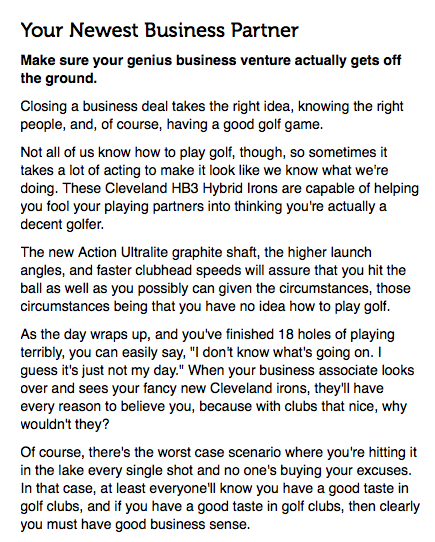
The idea was to talk a little bit about the product and then have some fun with it too. This was later adopted by several competitors, but where Woot stood out was the pure snark of it all. For example, Woot had a habit of selling batteries . . . a lot . . . so we’d even be self-deprecating when it called for it, like this one I did about batteries when our loyal customers were probably hoping for something else:
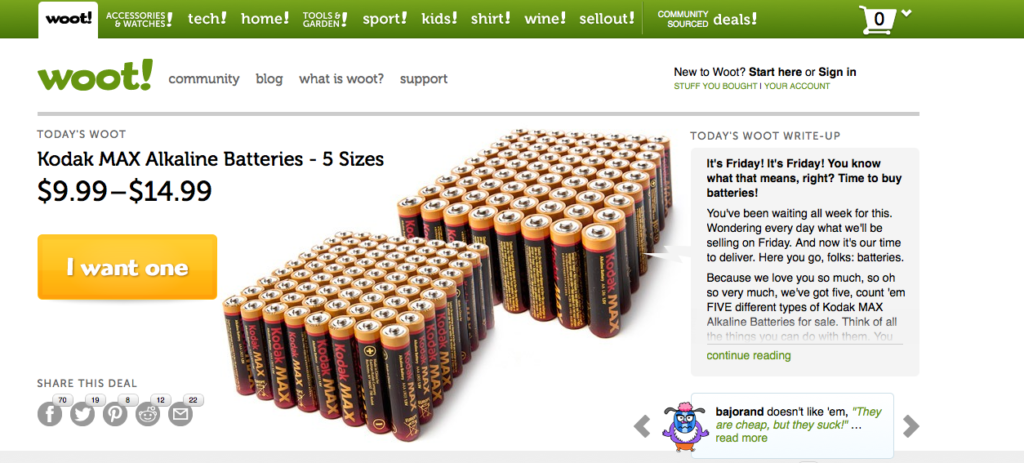
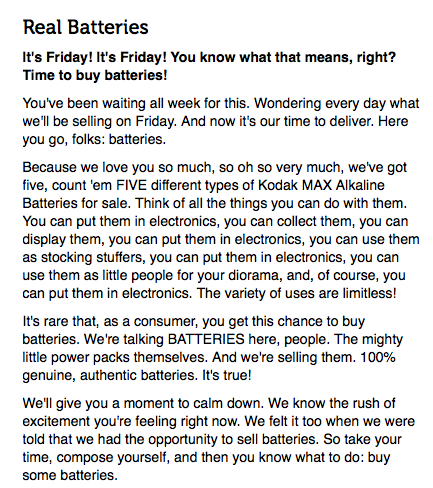
But I think what also made Woot’s write-ups special was that they let us be creative like with this parody poem I wrote:
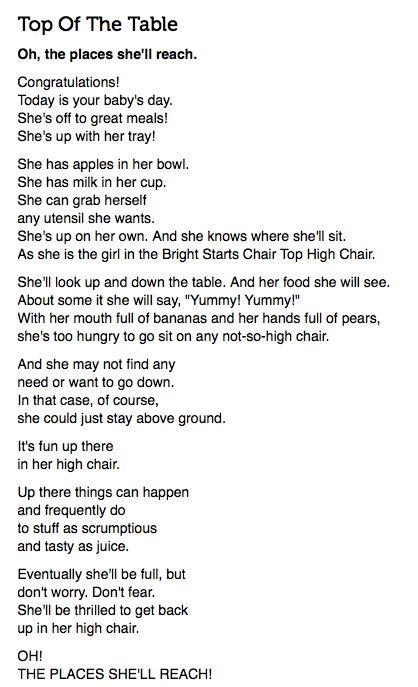
But this extended beyond just the main daily deal write-ups. As Woot grew, it added subcategories that it called Plus Sales, which were multi-day flash sales in addition to the deal of the day. For these, we’d write shorter write-ups to introduce the category:


These would also have smaller subtitles that would appear as tiles on the main pages:
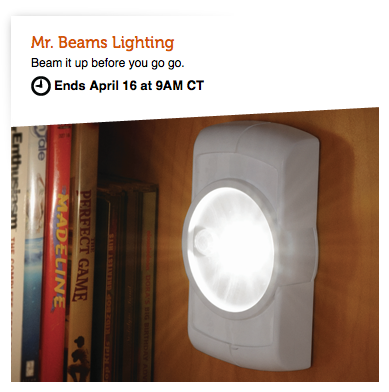

We’d churn out several of these, so the inspiration could be whatever. In the cases above, a song popping into my head, puns, or a plain stupid joke.

This even extended into descriptions of the brands we sold! Sometimes, it’d be an actual accurate fact followed by a little dose of commentary:

Other times it’d be a totally fabricated story:

Or we’d even break the fourth wall:

The point is Woot had (and to some extent still has — but a lot of creativity was lost with cost-cutting) a very unique approach to communications that made it stand out, and it was a blast to contribute to it. But I also realize that if you’re not aware of it, clicking through my samples galleries might leave you wondering “What the heck am I looking at?” So I hope this primer helps!